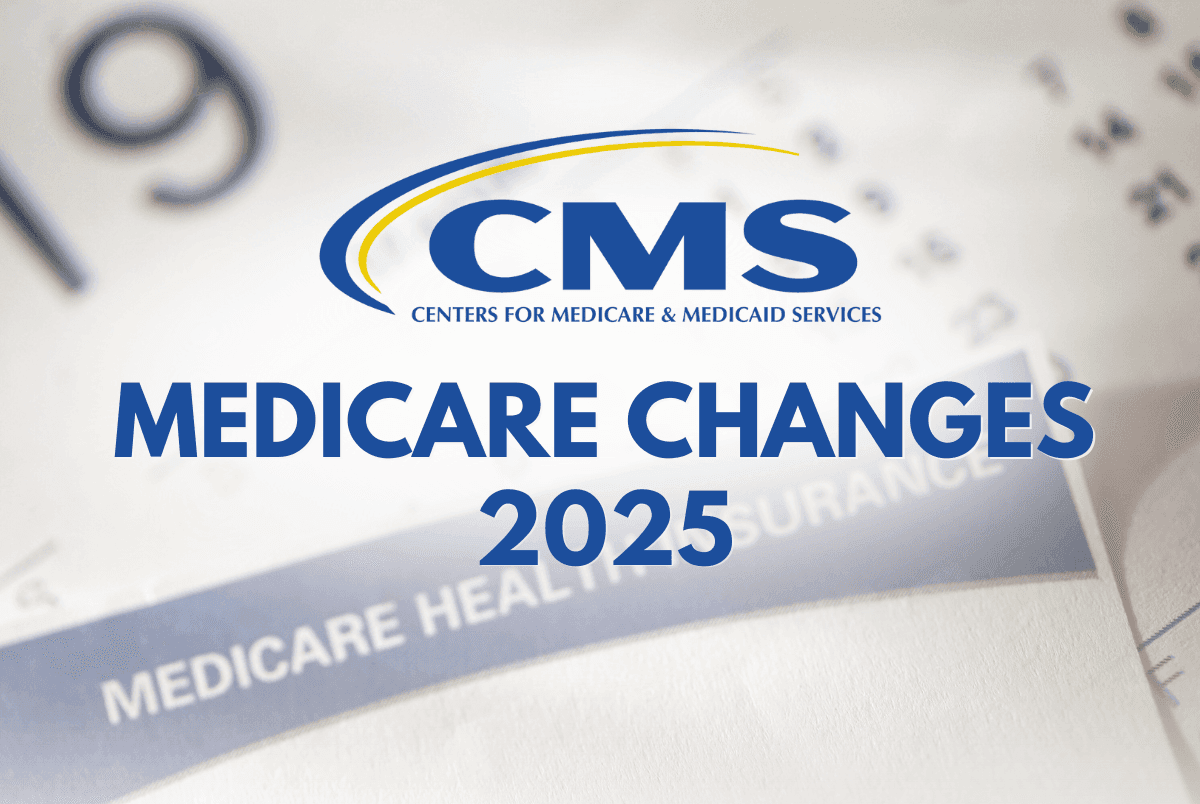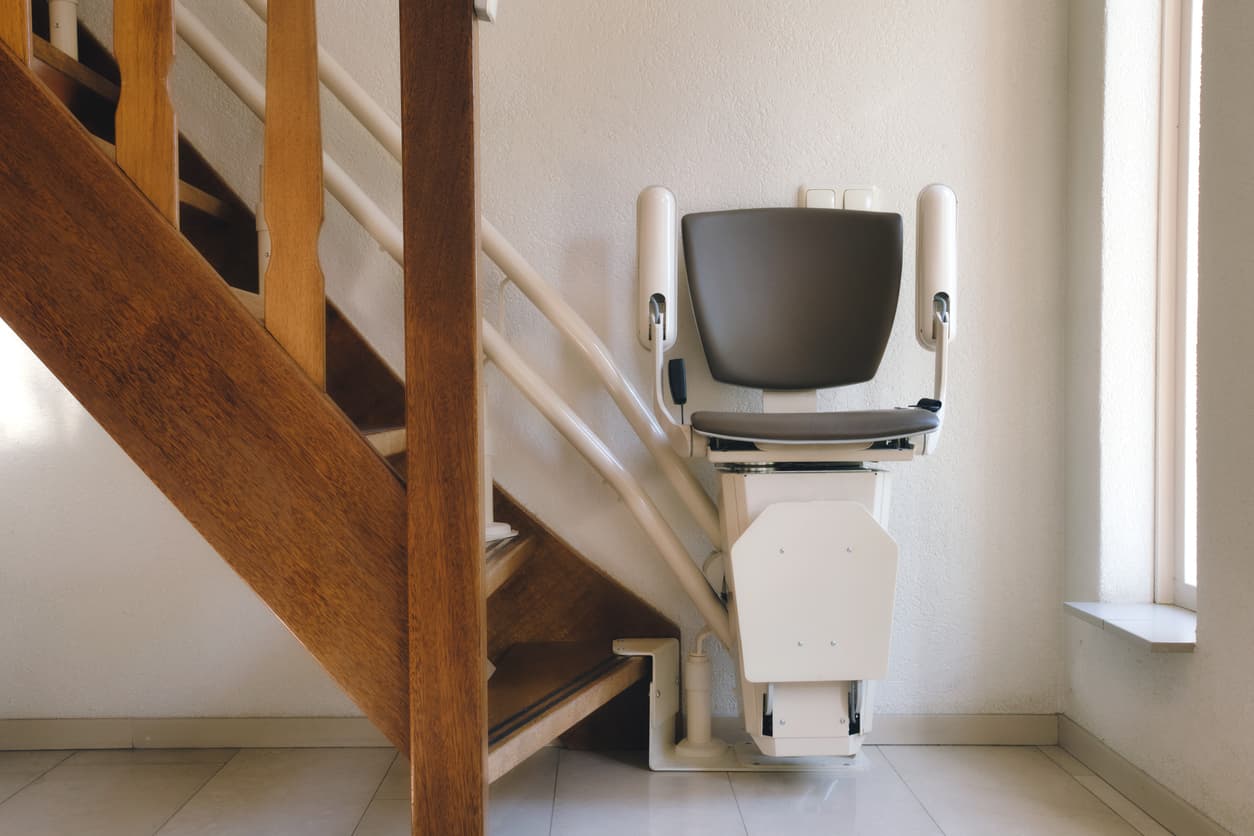Simple Strategies to Manage Your Out-of-Pocket Costs
Navigating your medical expenses can be overwhelming, and it becomes even more challenging if your doctor doesn't accept Medicare.
Speak with a Medicare Advocate
While most healthcare providers widely accept Medicare
Let's look at how healthcare providers approach Medicare beneficiaries and what you can do when your doctor doesn't take Medicare.
Do All Doctors Accept Medicare?
No. Not all doctors accept Medicare.
Some physicians may deny Medicare due to the following reasons:
Tedious paperwork — Tasks like paperwork, compliance checks and claims filing may burden smaller medical practices, leaving less time for patient care
Low reimbursement — For some physicians, the actual cost of the care provided is much higher than the reimbursed rate. In addition, the
2023 Physician Fee Schedule (PFS)
brings a potential reduction in Medicare fees for physicians ranging from 4.5% to 8.5%.Stringent rules — Some doctors may not be able to comply with Medicare's strict rules
Before receiving medical care, it's essential to confirm that your healthcare provider accepts Medicare to avoid unnecessary out-of-pocket expenses.
How Doctors Approach Medicare Patients
If you're enrolled in Original Medicare, a significant factor that determines your Part B cost (after you've paid the deductible) is the type of provider you choose. Medicare classifies providers into three types.
Physicians or healthcare providers can register with Medicare as a:
1. Participating Provider
These providers accept "assignment" on all Medicare claims for their Medicare patients, which means they agree to accept Medicare’s approved amount as full payment for all covered services. Almost 98%
When you receive care from a participating Medicare provider, you're only responsible for the cost-sharing amount required by Medicare. This means if you're on Original Medicare, you'll have to pay:
The Part B deductible, and
20% of the Medicare-approved amount (coinsurance)
2. Non-Participating Provider
These providers accept Medicare patients but can choose to accept Medicare assignments on a claim-by-claim basis. Unlike participating providers, they're limited to only 95% of the Medicare-approved amount if they accept a Medicare assignment.
In contrast to participating providers, non-participating providers can charge beneficiaries more than the Medicare-approved amount (not exceeding 15% of the fee-schedule allowed amount) — also known as the limiting charge.
If you're seeing a non-participating provider, you'll have to pay for the following:
The
excess charges
— the amount above the Medicare-approved amount for a serviceThe
Part B deductible
, and20% of the Medicare-approved amount (coinsurance)
3. Opt-Out Provider
These providers don't accept Medicare at all. They have private contracts with their Medicare patients, which allow them to set their prices for services without limitation. Fortunately, only a small number of doctors have chosen to opt out of Medicare
If you're seeing a provider who opted out of Medicare, you’ll be responsible for 100% of the cost of the service. You may also need to sign an agreement to be accountable for the total cost of your care, and neither you nor your provider can send a bill to Medicare for payment.
What to Do When Your Doctor Doesn't Accept Medicare
While healthcare providers across the country widely accept Medicare, your doctor might not, which may limit your access to the medical care you need.
Here are a few steps you can take if your physician doesn't accept Medicare.
1. Remain with Your Current Provider and Pay the Difference
If your doctor is a non-participating provider who chooses not to accept Medicare assignments, they may charge you more than the Medicare-approved amount for their services.
If you want to continue seeing your current doctor, you'll likely have to pay the difference between the fee charged and the Medicare-approved amount.
Note: You may even have to pay the entire bill during your doctor's visit and submit a claim to Medicare. To request reimbursement for the portion of the bill approved by Medicare, you or your doctor can submit Form CMS-1490S
For example, suppose your non-participating doctor charges $200 for a specific service, but the amount approved by Medicare for that service is only $150. If your doctor agrees to accept the Medicare assignment, you'll pay the difference of $50 — in addition to the 20% coinsurance for the service, which amounts to $30.
Here's the math:
$50+ 20% ($150) = $50 + $30 = $80
2. Ask for a Referral
If continuing to see your non-participating doctor is not feasible due to financial constraints, it's worth asking your doctor to recommend another physician in your area who accepts Medicare.
Chances are your current doctor has encountered this situation before and may have already made arrangements to transfer Medicare patients to another doctor.
By asking for a referral, you may be able to maintain continuity of care and avoid the potential difficulties of finding a new physician on your own.
3. Ask for a Discount
If your doctor is a non-participating provider or has opted out of Medicare, and the cost of the medical service is not within your financial means, you can ask for a discount.
Some physicians may be willing to lower their rates for established patients. They may offer extended payment plans for patients needing expensive treatments or procedures.
4. Visit an Urgent Care Center or Walk-In Clinic
Urgent care centers are medical facilities that provide walk-in medical care for people who need to see a healthcare provider but can't get an appointment with their primary care physician
Many urgent care centers and walk-in clinics accept Medicare and even serve as primary care practices for some patients.
If you're experiencing a minor illness, require a flu shot, or need a diagnostic test, visiting one of these clinics may be more cost-effective than scheduling a traditional doctor's appointment. You can save your doctor visits for more serious medical conditions.
5. Refer to the Physician Compare Directory
The Physician Compare Directory
Once you’ve selected a physician, we recommend you confirm with the provider's office to ensure they're still taking new Medicare patients, as this can change anytime.
You can also ask nearby hospitals whether they have doctors who accept Medicare.
6. Concierge Care
Concierge medicine is a healthcare model in which patients pay an annual (around $1,500) or monthly fee to a primary care physician or healthcare practice in exchange for personalized medical care and services. It includes several benefits like same-day or next-day appointments, 24/7 access to their doctor, personalized health and wellness plans, and coordination of specialist care.
Concierge Doctors may accept Medicare assignments, but you'll have to pay for the annual membership, as Medicare doesn't cover this cost. If you can afford it and anticipate regular doctor visits, concierge medicine is worth considering.
Here are some key points to think about when signing up for concierge care:
If your doctor accepts Medicare assignments, they cannot charge you extra for Medicare-covered services. This means your membership fee can’t include additional charges for items or services that Medicare usually covers unless Medicare won’t pay for that item or service.
If your doctor doesn't accept Medicare assignments, they may charge you more than the Medicare-approved amount for their services. But this amount should not exceed 15% of the Medicare-approved amount.
All Medicare doctors (whether or not they accept assignments) can charge you for services that Medicare doesn't cover. Review your specific plan's coverage for any additional fees associated with concierge care.
What's The CARES Act of 2020?
The Coronavirus Aid, Relief, and Economic Security ( CARES
A few changes brought about by The CARES Act:
Improved Medicare coverage to incorporate
COVID-19 testing
, treatment, and services for beneficiaries. Medicare covers 100% of the COVID-test costs, including COVID-19 antibody (or “serology”) tests.Telehealth services under Medicare are now more flexible, which enables individuals to obtain medical care while adhering to social distancing guidelines.
Medicare now certifies physician assistants, nurse practitioners, and certified nurse specialists to provide home health services to Medicare beneficiaries.
Medicare has increased payments for COVID-19 hospitalizations and medical equipment to help healthcare providers cover the costs of caring for COVID-19 patients.
Under the CARES Act, states that have not expanded Medicaid can still use the program to provide COVID-19-related services for uninsured adults who would've been eligible for Medicaid if their state had chosen to expand its coverage.
Other people with limited Medicaid coverage may also qualify for coverage under this option.
Stay Informed to Overcome Healthcare Challenges
It can be challenging to navigate your medical expenses, especially if your doctor doesn't accept Medicare.
Despite Medicare's widespread acceptance among healthcare providers, some doctors still choose not to participate.
You can explore several practical solutions to get the care you need.
Whether it's finding alternative providers, negotiating rates, or asking for a referral, options are available.
At Fair Square Medicare
Recommended Articles

What is Plan J?
Jul 14, 2025

2024 Cost of Living Adjustment
Nov 13, 2023

Medicare Deductibles Resetting in 2025
Jan 18, 2024

Does Medicare Cover Compounded Medications?
Apr 4, 2023

Does Medicare Cover Penile Implant Surgery?
Dec 9, 2022

Does Medicare Cover Macular Degeneration?
Nov 30, 2022

What To Do If Your Medicare Advantage Plan Is Discontinued
Feb 26, 2024

How is Medicare Changing in 2025?
Dec 21, 2022

Does Medicare Cover Light Therapy for Psoriasis?
Jan 17, 2023

Does Medicare Cover Orthodontic Care?
Nov 18, 2022

Does Medicare Cover Stair Lifts?
Nov 18, 2022

What You Need to Know About Creditable Coverage
Jan 18, 2023

Does Medicare Cover Flu Shots?
Dec 9, 2022

2025 Medicare Price Changes
Oct 30, 2023

Does Medicare cover Deviated Septum Surgery?
Nov 18, 2022

Costco Pharmacy Partners with Fair Square
Jan 13, 2023

Medicare 101
May 20, 2020

14 Best Ways for Seniors to Stay Active in Nashville
Mar 10, 2023
More of our articles
14 Best Ways for Seniors to Stay Active in Washington, D.C.
14 Best Ways to Stay Active in Charlotte
Are Medicare Advantage Plans Bad?
Building the Future of Senior Healthcare
Can I Laminate My Medicare Card?
Can Medicare Advantage Plans be Used Out of State?
Can Medicare Help with the Cost of Tyrvaya?
Do You Need Medigap if You're Eligible for Both Medicare and Medicaid?
Does Medicare Cover an FMT?
Does Medicare Cover Bariatric Surgery?
Does Medicare Cover Boniva?
Does Medicare Cover Cardiac Ablation?
Does Medicare Cover Cartiva Implants?
Does Medicare Cover Cosmetic Surgery?
Does Medicare Cover Diabetic Eye Exams?
Does Medicare Cover Disposable Underwear?
Does Medicare Cover Exercise Physiology?
Does Medicare Cover Fosamax?
Does Medicare Cover Geri Chairs?
Does Medicare Cover Hepatitis C Treatment?
Does Medicare Cover Hoarding Cleanup?
Does Medicare Cover Home Heart Monitors?
Does Medicare Cover Ilumya?
Does Medicare Cover Inqovi?
Does Medicare Cover Iovera Treatment?
Does Medicare Cover Jakafi?
Does Medicare Cover Ketamine Infusion for Depression?
Does Medicare Cover Kidney Stone Removal?
Does Medicare Cover Krystexxa?
Does Medicare Cover Mouth Guards for Sleep Apnea?
Does Medicare Cover Nexavar?
Does Medicare Cover Ozempic?
Does Medicare Cover Piqray?
Does Medicare Cover RSV Vaccines?
Does Medicare Cover SIBO Testing?
Does Medicare Cover TENS Units?
Does Medicare Cover Tymlos?
Does Medicare Cover Vitamins?
Does Medicare Cover Wart Removal?
Does Retiring at Age 62 Make Me Eligible for Medicare?
Does Your Medicare Plan Cover B12 Shots?
Does Your Plan Include A Free Gym Membership?
Fair Square Client Newsletter: AEP Edition
Gap Health Insurance: The Secret Sidekick to Your High-Deductible Plan
Health Savings Accounts (HSAs) and Medicare
How Do Medigap Premiums Vary?
How Does Medicare Pay for Emergency Room Visits?
How Does the End of the COVID-19 Public Health Emergency Affect Your Medicare?
How Much Does Medicare Part A Cost in 2025?
How Much Does Rexulti Cost with Medicare?
How Often Can I Change Medicare Plans?
How to Apply for Medicare?
How to Deduct Medicare Expenses from Your Taxes
How to Enroll in Social Security
Is Balloon Sinuplasty Covered by Medicare?
Is Emsella Covered by Medicare?
Is HIFU Covered by Medicare?
Is Vitrectomy Surgery Covered by Medicare?
Medicare Consulting Services
Medicare Savings Programs in Kansas
Medigap Plan N vs. Plan G — Which One Fits You in 2025?
Plan G vs. Plan N
Seeing the Value in Fair Square
The Fair Square Bulletin: October 2023
What Are Medicare Part B Excess Charges?
What If I Don't Like My Plan?
What is the 8-Minute Rule on Medicare?
What People Don't Realize About Medicare
What to Do When Your Doctor Doesn't Take Medicare
What's the Deal with Flex Cards?
When to Choose Medicare Advantage over Medicare Supplement
Which Medigap Policies Provide Coverage for Long-Term Care?
Get the Fair Square Bulletin
Medicare savings tips, helpful guides, and more.
Virgil Insurance Agency, LLC (DBA Fair Square Medicare) and www.fairsquaremedicare.com are privately owned and operated by Help Button Inc. Medicare supplement insurance plans are not connected with or endorsed by the U.S. government or the federal Medicare program. This is a solicitation of insurance. A licensed agent/producer may contact you. Medicare Supplement insurance is available to those age 65 and older enrolled in Medicare Parts A and B and, in some states, to those under age 65 eligible for Medicare due to disability or End-Stage Renal disease. Virgil Insurance Agency is a licensed and certified representative of Medicare Advantage HMO, HMO SNP, PPO, PPO SNP and PFFS organizations and stand-alone PDP prescription drug plans. Each of the organizations we represent has a Medicare contract. Enrollment in any plan depends on contract renewal. The plans we represent do not discriminate on the basis of race, color, national origin, age, disability, or sex. Plan availability varies by region and state. For a complete list of available plans please contact 1-800-MEDICARE (TTY users should call 1-877-486-2048), 24 hours a day/7 days a week or consult www.medicare.gov. © 2026 Help Button Inc
We do not offer every plan available in your area. Any information we provide is limited to those plans we do offer in your area. Please contact Medicare.gov or 1-800-MEDICARE to get information on all of your options.
MULTIPLAN_FairSquareMedicare_01062022_M
Fair Square Medicare


